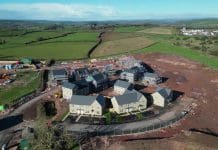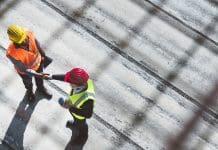As workers in hotels, offices, leisure facilities and other buildings begin the gradual return to work, legionella infection is looming on the horizon which, if left untreated, could have deadly consequences
During lockdown, water systems in many buildings, which are designed for constant use – experienced low to no flow, loss of disinfectant residual and tepid-to-warm water temperatures.
These are the conditions which allow harmful bacteria such as Legionella to grow. Legionella amplification can cause Legionellosis, a collection of infections which emerged in the second half of the 20th century.
Like Covid-19, which disproportionately struck the elderly and those with pre-existing conditions, Legionellosis is particularly dangerous to those who are susceptible due to age, illness, immunosuppression or other risk factors, such as smoking.
With the Scottish Government announcing the easing of restrictions on bingo halls and casinos as well a swimming pools and gyms, the Scottish and Northern Ireland Plumbing Employers’ Federation (SNIPEF) is warning that comprehensive checks must be in place prior to any re-opening.
Risk assessments more important than ever
Martyn Raine, technical and skills manager at SNIPEF, said: “Water, as a risk, can often be overlooked. People are very conscious of the dangers of elements such as gas and carbon monoxide, but we have to remain aware that water can pose a real risk to health also.
“Legionella bacteria can be naturally present in many water sources and systems and remains dormant below 20oC.
“Water systems are designed to be used and operated and not to sit dormant for long periods, if the water system does not turnover there is a real risk of the water being exposed to conditions that may promote bacterial growth.
“It is extremely important to risk assess water systems as buildings open up for business again, but the fact is that it is important all the time and building owners have a duty of care to the occupants, from the private rented sector of homes to larger commercial type buildings such as an office building.
“SNIPEF member companies are used to carrying out risk assessments which check the water system for any feature, fault or condition that may contribute to an environment which promotes bacterial growth.
“A risk assessment will identify any control measures and monitoring required on such things storage vessels which could hold deposits of debris or sediments which can act as a catalyst and create a perfect breeding ground for the Legionella bacteria.
“Duty holders must refer to their water risk assessment which will identify what control measures should be in place as part of normal health and safety procedures, but as we bring unused buildings back into active service, there may also be a need to update your current water risk assessment to address any future building closures.”

















